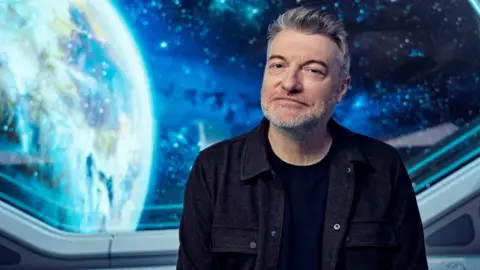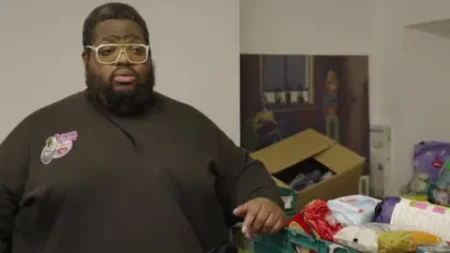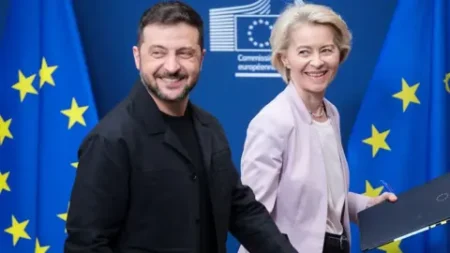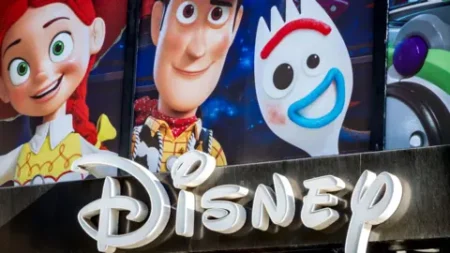The return of Charlie Brooker’s acclaimed anthology series, *Black Mirror*, has become a topic of great interest as it launches into its seventh season. After a couple of years’ hiatus, many viewers are eager to see how the show’s unique narrative style will adapt to an ever-evolving technological landscape that captivates and disturbs in equal measure. In a recent interview, Brooker discussed the various sources of inspiration that fuel his storytelling, demonstrating just how much the world has changed since the show’s inception in 2011.
When *Black Mirror* debuted, the digital environment was dramatically different. At that time, technological advancements like Siri and the iPhone 4S were novel and represented the cutting-edge of consumer tech. Fast forward to 2025, and the rapid progress evident in areas like artificial intelligence, social media platforms, and wearable tech has brought forth new realities that shape human interactions and societal norms. As Brooker notes, there exists a wealth of material to draw inspiration from—far richer than what was available a decade ago.
Brooker expresses a confident outlook regarding the series’ future. He suggests that the increasing pace of technological advancement not only provides a broader canvas for storytelling but also aligns more closely with viewers’ lived experiences. “Technology is developing in the real world very quickly. That means there are more sources of inspiration,” he states. This sentiment reflects the show’s ability to engage with and comment on contemporary issues, confirming its relevance in today’s world. He emphasized that the complexity of technology has become part of viewers’ everyday lives, making the concepts presented in the show resonate even more.
Emma Corrin, known for her role in *The Crown*, joins Brooker in the current season and highlights that the themes explored are particularly relevant as audiences interact more closely with innovations like AI. “It’s much closer to home. People have access to stuff like AI which is terrifying,” she remarks. This acknowledgment of shared responsibility influences the storytelling of *Black Mirror*, enhancing its effectiveness as a cultural commentary.
As each episode unfolds, *Black Mirror* continues to push creative boundaries. This season features episodes like “Hotel Reverie,” where Corrin portrays a retro Hollywood actress grappling with the implications of modern technology. Her enthusiasm for the character reflects the show’s design to parody and critique the entertainment industry while merging past and future narratives. The actors, including Issa Rae who stars alongside Corrin, emphasize how the fictional stories serve as cautionary tales about the implications of uncontrolled technological growth.
Brooker touches upon another familiar theme in his work: gaming. A forthcoming episode titled “Plaything” sees the return of characters from the interactive feature *Bandersnatch*, set against the backdrop of the gaming industry. The synergy of nostalgia and innovation within this episode exemplifies Brooker’s knack for weaving personal experiences into the narrative. This storyline resonates with him, as he often reflects on his past as a game journalist.
Moreover, the cast, including Lewis Gribben and Peter Capaldi, adds depth to the series. Gribben, who plays Cameron, a socially awkward games journalist, connects personally with digital culture, stating he actively engages with gaming as a form of relaxation. This grounding ensures that the artistic representation remains authentic, keeping with the spirit of *Black Mirror*.
In conclusion, *Black Mirror* Season Seven promises to explore the complex intersections between humanity and technology through its amalgamation of dark humor, innovative storytelling, and relevant socio-political themes. Each episode is designed to challenge perceptions, provoke thoughts, and provide insights into the potentially dystopian repercussions of our contemporary digital age. Following its release on April 10, 2025, it is certain to ignite discussions about where society is headed—much like its predecessors did.











